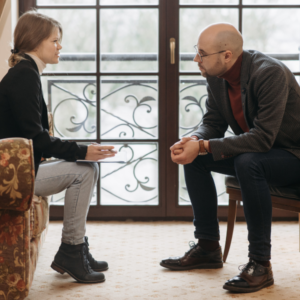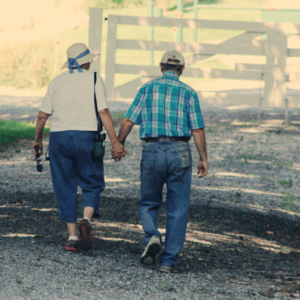Understanding Toxic Relationships
Alright, let’s have a little chat about toxic relationships and how they mess with people’s happiness. Life’s complicated enough without getting involved in something that’s bringing you down.
Definition of a Toxic Relationship
So, what exactly is a toxic relationship? It’s the kind where drama is always on tap. Manipulation and control take center stage, while criticism and disrespect handle lighting and sound. When trust gets thrown out the window, we end up with a pile of resentment and a side of emotional mess. Catching onto these bad vibes early on is like finding the golden ticket to happier connections.
Impact of Toxic Relationships on Individuals
Being wrapped up in a toxic relationship is like swimming with bricks tied to your ankles. Here’s what that can look like:
| Effects of Toxic Relationships |
|---|
| Stress that clocks in and never clocks out |
| Self-worth hitting rock bottom |
| Feeling like a lone wolf, howling at the moon |
| Getting mind-gamed |
| Healthy days are few and far between |
| Boundaries crumbling like a sandcastle at high tide |
| A nagging feeling of “not enough” |
| Relationships with other folks taking a hit |
Knowing what toxic relationships can do is a big deal if you’re looking to build connections that lift you up. Recognizing these bumps in the road is the first step to finding a route that leads somewhere positive. If you’re feeling tangled up in toxicity, maybe have a look at setting some solid boundaries in relationships and giving yourself the TLC you deserve. This can go a long way in shaking off the bad stuff and setting yourself on the path to emotional high ground.
Recognizing Signs of Toxicity
Relationships can sometimes veer into murky waters, dragging folks into toxic situations that mess with their well-being. Spotting the red flags in a toxic relationship is a big step toward clearing the air and finding a healthier path.
Lack of Respect
Respect is like the secret sauce in any good relationship—without it, things fall apart. Dismissive gestures, sarcastic comments, or not caring about personal boundaries are all signs that respect’s gone out the window. Constantly feeling like your thoughts and feelings are being tossed aside is a dead giveaway that you’ve stepped into toxic territory.
If you’re in a spot where you’re not feeling respected, it’s time to lay it all out on the table. Keeping open and genuine conversations about setting boundaries is key. You want a space where both sides feel heard and valued, leading to a smoother relationship.
Emotional Manipulation
Watch out for emotional manipulation; it’s a sneaky way toxicity creeps in. Manipulators might twist words, make you feel guilty for no reason, or jerk your emotions around like puppets on a string. This kind of manipulation can be hard to spot at first because it’s like a silent spell, but once you know how it feels, it’s easier to catch.
Stay sharp about your own feelings and what you stand for. If things feel off, talk to the folks you trust or even a therapist. Getting an outside view can help untangle the knots of manipulation. Before you try to add more spark to your relationship, make sure the foundation’s solid and free from these tricks.
Control and Isolation
Control and isolation are typical tactics of toxic relationship behavior. It’s about wielding power, where one partner calls all the shots and sidelines the other. This can look like monitoring texts, dictating what’s what, or even cutting someone off from friends and family, leaving them socially stranded.
Feeling locked down or cut off? It’s time to draw some clear lines and reclaim your freedom. Talk to a counselor or therapist who can help you navigate these murky waters, giving you the tools to push for a better, more balanced relationship. Remember, trust and mutual respect should be the bedrock of any relationship.
Brushing up on signs like lack of respect, emotional games, and control issues helps people confront and deal with toxic behavior head-on. A little self-reflection and the right support can break the cycle, leading to more positive and satisfying connections.
Effects on Mental Health
Being stuck in a bad relationship ain’t just a rough patch; it can really mess with your mind. People might end up dealing with anxiety, depression, feeling like they’re not worth much, and just plain worn out emotionally.
Anxiety and Depression
You ever felt like you’re more on edge in a relationship than you are happy? Yeah, that’s what’s known as anxiety and depression knocking at your door, courtesy of a toxic romance. It’s like walking on eggshells around your partner, always feeling shaky, worried, or down in the dumps. It’s more than just a bad day; it’s a constant storm inside your head making everything feel ten times worse.
If you’re stuck in this loop, panic attacks and emotional freakouts might become the unwanted norm, taking away your peace and dropping your energy to zilch. It’s crucial to spot these red flags sooner rather than later—your happiness depends on it.
Low Self-Esteem
Ever feel like you’re just not good enough, no matter how hard you try? That’s what toxic relationships do—they chew away at your self-worth bit by bit until you believe you’re useless. Constant put-downs, mind games (like gaslighting, where they make you question your sanity), and manipulative tricks are their weapons of choice.
Before you know it, you’re questioning if you’re good enough for anything or anyone and your self-image’s taken a nosedive. Picking yourself up from such a beatdown is tough, but it’s an important step to finding your confidence again.
Emotional Exhaustion
At the end of a long day, feeling worn-out is normal, but when it comes from a relationship, it shouldn’t be. The stress and drama line up day after day, and tackling them drains your mental battery faster than streaming videos on low power mode.
You might see yourself running on empty, not just physically but mentally too. Emotional burnout is real—it leaves you feeling like a zombie, alive but devoid of any spark. Spotting when you’re running on fumes is important so that you can hit pause, recharge, and come back stronger.
Getting a handle on how a toxic relationship can twist your mental health is key. It’s all about seeing those signs for what they are and taking back control. Love yourself enough to make the break, and with the right support system, bounce back on your way to feeling whole again.
Breaking Free from Toxicity
Breaking free from a toxic relationship is like throwing off a heavy coat on a sunny day. It requires a bit of muscle and a whole lot of determination. Taking back control of your life begins with doing a few important things—setting boundaries, reaching out for help, and treating yourself like royalty with some solid dose of self-care.
Setting Boundaries
Drawing lines in the sand is key when you’ve got a toxic relationship on your hands. Let folks know what you’ll tolerate and what you won’t. It’s about saying “no” more often and meaning it. These boundaries aren’t just for keeping bad behavior at bay; they’re like a shield for your soul. If you need a roadmap to setting these limits, our piece on boundaries in relationships might just be the map you need.
Seeking Support
Having a cheering squad is golden when you’re cutting ties with toxicity. Friends, family, or the wise words of a counselor can provide that much-needed backbone. Being heard and having a shoulder to cry on makes the rough patches manageable. Therapy isn’t just for the movies; it’s a lifeline when your heart feels like it’s been through a blender. Our guide on counseling and therapy options might help you find what hits the spot.
Self-Care Practices
Self-care is your best buddy when kicking a toxic relationship to the curb. It’s like recharging your batteries, making you stronger and more resilient. Whether it’s sweating out stress in a yoga class, scribbling down your wildest dreams, or just having a laugh with a glitter bomb bath, self-care is about lifting yourself up. Giving yourself some TLC helps heal the wounds and boosts you back onto your feet, ready for a brighter day.
As you step away from the shadows of a toxic relationship, remember to be gentle with yourself. You’ve made a brave choice to follow happiness and emotional peace. By throwing up boundaries, leaning on your support tribe and nurturing your soul, you’re paving the way for a life marked by joy and healthy connections.
Moving Forward
When folks are trying to shake off the shadows of toxic relationships, the plan is simple: heal, recover, find your mojo again, and dive into relationships that don’t make you want to pull your hair out.
Healing and Recovery
Getting over a toxic relationship’s scars takes time, a bit of heart-searching, and folks who’ve got your back. It’s important to face the music about the pain and mess you’ve been through. Counseling is like a shoulder to lean on where you can spill your guts, figure out how to deal, and start stitching yourself back together. Healing is your own path. You don’t have to do it alone, so reach out if you need a hand.
Rebuilding Self-Worth
Let’s be honest—those toxic relationships can really mess with your head, especially your self-worth. Building yourself back up involves a whole lot of self-care, telling yourself you’re worth it, and hanging out with people who make you feel good about who you are. Do things that make your heart sing, chase after what you want, and give yourself daily pep talks. Remember, your worth is something that comes from inside, not from what others say or do.
Finding Healthy Relationships
Once you’ve kicked a toxic relationship to the curb, the natural step is to look for connections that actually bring joy, not drama. Learn what a healthy relationship looks like, practice talking and listening, and make sure respect goes both ways. Take moments to reflect on what went wrong and right in the past and use that wisdom to build stronger bonds moving forward.
Leaving behind a toxic relationship is all about gazing inside, taking care of number one, and promising yourself to grow. By focusing on healing, reclaiming your self-respect, and nurturing good vibes, you’re setting the stage for a more peaceful heart and real, authentic bonds with others.
Resources for Help
Finding yourself tangled up in a toxic relationship can feel like being caught in a storm without an umbrella. Luckily, there are resources out there to throw you a lifeline. Take a look at a few helpful places where you can find support and guidance if you’re dealing with a toxic relationship.
Hotlines and Support Groups
Kind of like a friend who’s always ready to answer your 2 a.m. calls, hotlines and support groups are there when you most need them. Staffed with folks who are pros at lending an ear, they can give you some emotional support, practical advice, or just point you to more help. Whether you’re after urgent help or trying to track down local services, they’re here for you like your own personal team of superheroes.
| Resource | Contact Information |
|---|---|
| National Domestic Violence Hotline | 1-800-799-SAFE (7233) |
| Loveisrespect National Dating Abuse Helpline | 1-866-331-9474 |
| Crisis Text Line | Text “HELLO” to 741741 |
Counseling and Therapy Options
Getting some professional help can be a game-changer when you’re in a toxic relationship. Therapists and counselors are like compassionate detectives of your mind, helping you piece things together and plan your escape to a healthier mental space. Whether you prefer a solo session to plan your getaway or a group meet-up to share war stories, professional mental health support is key to getting back on your feet.
| Counseling Option | Description |
|---|---|
| Individual Therapy | Have some one-on-one time with a therapist to face challenges and dive into your thoughts and feelings. |
| Couples Counseling | Sit down together with a counselor to untangle relationship knots and work on better communication. |
| Group Therapy | Join a circle of support, led by a therapist, to swap stories and cheer each other on. |
Recommended Reading
Reading up on toxic relationships can be like armoring up for battle. There are tons of books out there that can offer you nuggets of wisdom, candid advice, and tools for reflection. With each page, you’ll get a closer look at toxic behaviors, start reforging your boundaries, and figure out how to craft healthier relationships down the road.
| Recommended Book | Author |
|---|---|
| “The Verbally Abusive Relationship: How to Recognize It and How to Respond” | Patricia Evans |
| “Why Does He Do That?: Inside the Minds of Angry and Controlling Men” | Lundy Bancroft |
| “Codependent No More: How to Stop Controlling Others and Start Caring for Yourself” | Melody Beattie |
Using these resources can help put you on the path to recognizing, confronting, and eventually breaking free from the grip of toxic relationships. Whether you reach out to a hotline, connect with a counselor, or lose yourself in a good book about healthy dynamics, remember—you’re taking important steps toward recovery and healing.




